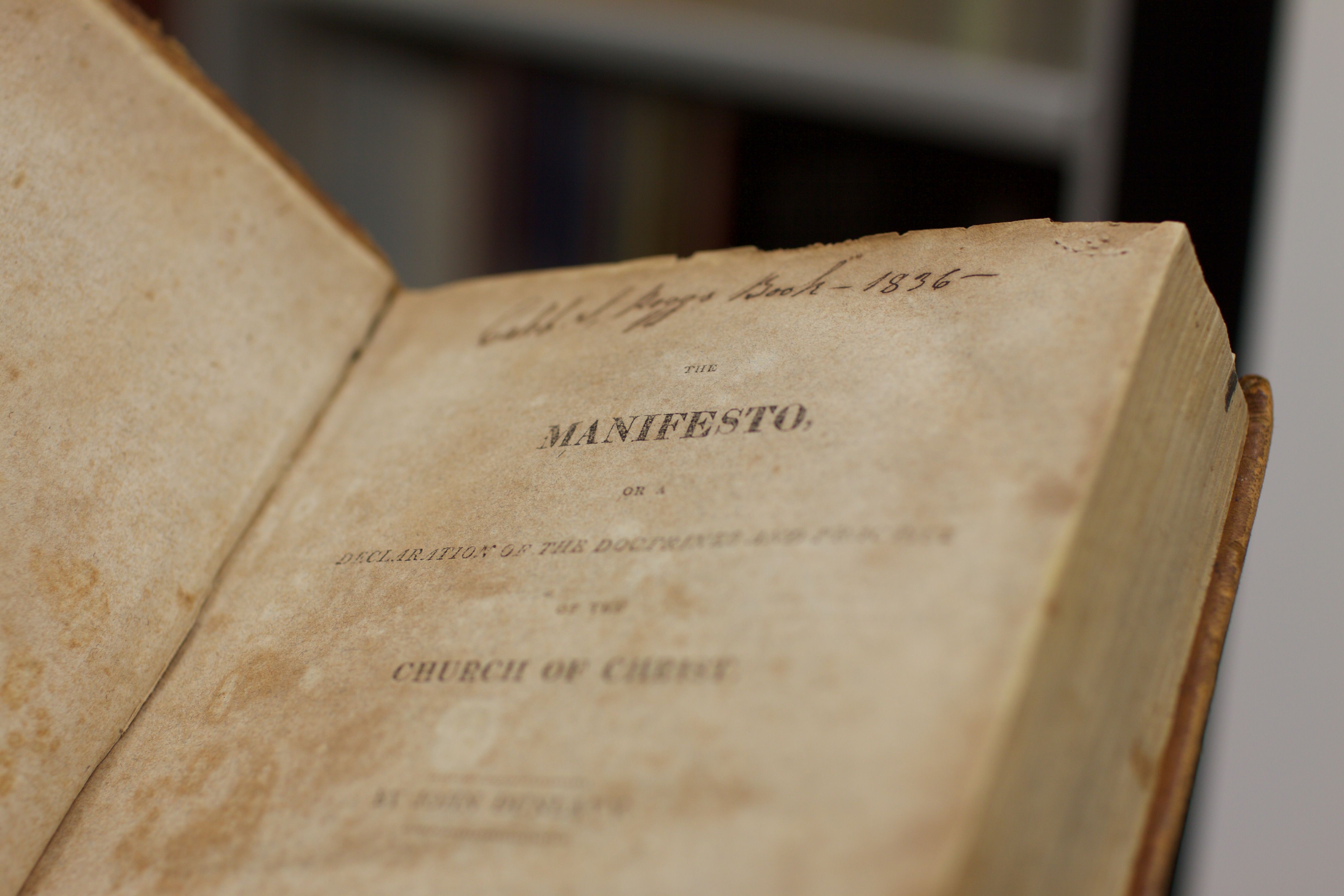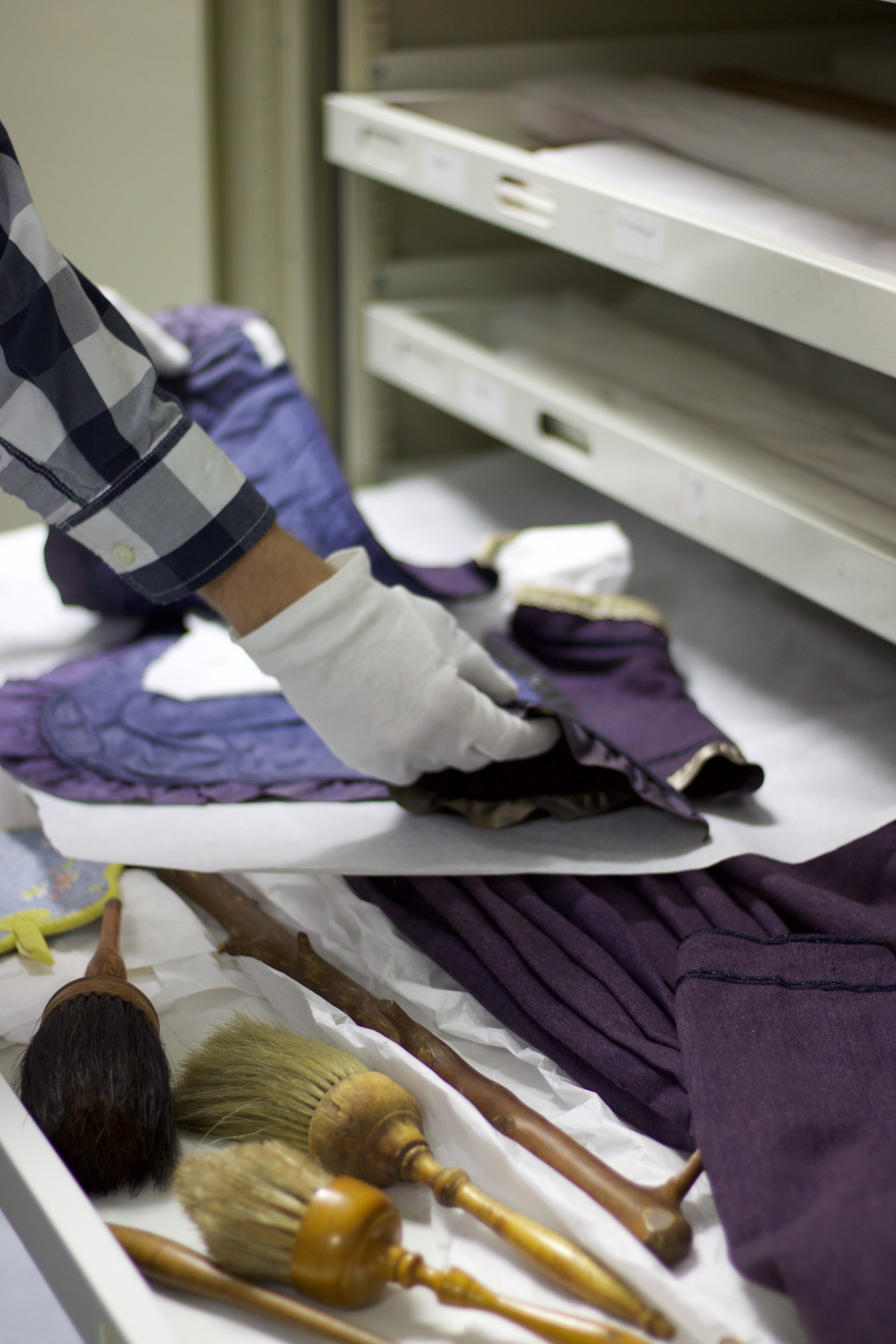Preservation has been central to the mission of Shaker Village from the time of its incorporation in 1961 and has been an ongoing effort ever since. Because the Shakers were practitioners of preservation themselves, Shaker Village is fortunate to have surviving portions of the Shakers’ material culture. The documents, artifacts, fences, gravestones, buildings and barns, which are now under our stewardship, require attention, care and frequent preservation. From major rehabilitation projects like the upcoming work planned for the 1824 Centre Family Dwelling and 1820 Meeting House, replacing the roof and renovating the interior of the Carpenters’ Shop and restoring the exterior of West Family Wash House to housing sensitive items of the Collection in a climate-controlled storage facility, at Shaker Village, preservation is always present and always at work.
For loftier undertakings, we may bring in consultants to ensure preservation success; but the day-to-day preservation of the Village’s 3-dimensional and archival materials lies in the hands of our Collections staff. Things like sorting and rehousing piles of newspapers in acid-free boxes, using cloth tape to secure detached book covers to their bindings, removing sticky-notes from book pages, ensuring 3-dimensional objects are stored up off the ground on shelves and platforms, laying textiles flat in secure, tissue-lined cabinets and monitoring objects for pests and mold are all a part of preserving the history of the Shakers.

See an original copy of The Manifesto on display in the East Family Wash House as a part of our Shaker Modern exhibit.
But, the preservation of treasured materials isn’t reserved strictly to the professionals: it’s something many folks do every day without even realizing it!
You might not think about it at the time, but when you do something as simple as organize bills or receipts in a filing cabinet, you’re doing something to preserve them for when you may need them down the road. Believe it or not, that’s PRESERVATION@WORK!
Whether it be for the coming months, years or generations, we all have things we’d like to keep for the future. Here are some ways you can put preservation to work in your own life:
- Keep documents and artifacts in a cool, dry area out of direct sunlight—not in the basement or attic where temperature and humidity can fluctuate with the seasons.
- Avoid grouping or marking documents using metal paperclips, rubber bands, staples, tape, sticky-notes or dog-earring. While actions like this may seem harmless at the time, they can be damaging to the items you’re trying to preserve. Instead, if documents need to be grouped or marked, use plastic paper clips or acid-free paper and folders.
- Something as simple as covering furniture with a sheet, quilt or moving blanket can help preserve 3-dimensional objects while in storage.
- Refrain from sealing photographs, newspaper articles and other paper documents in lamination, non-archival page-protectors or photo sleeves. These types of plastics are more harmful than helpful and will actually result in a more rapid deterioration of what you’re trying to save.
- Like living creatures, documents and objects need space and room to breathe. Never try to cram items into envelopes, folders, boxes, shelves or tight spaces. Give documents and objects ample space in their storage locations.
- Less is more. The less you access, handle and use your prized books, documents, artifacts, textiles, furniture and memorabilia, the more time you and future generations of your family will have with them. While handling rare and special items for reference, research and display, it’s best to do so with care, caution and infrequency to ensure their longevity.

Do you have a favorite outfit you just can’t seem to part with? The Shakers did, too! Come see a dress that was rehabilitated over the years by the Shaker who wore it on display in the East Family Wash House as a part of our Shaker Modern exhibit.
Preservation can be painstaking—sometimes a matter of replacing one paperclip at a time. But whether you’re a preservation pupil or pro, it’s often the basics that end up making the greatest difference.
Take part in our history! Join us June 3 to celebrate, as we kick off our largest preservation project since the 1960s. Tour the buildings, speak with the project’s architects and learn about our grant-funded, multi-phase effort to preserve, protect and interpret the Village’s spiritual center.
Make a difference! No matter how big or small, your gift can make a difference. Help us preserve Shaker Village by giving today!
Emálee Krulish, Archivist